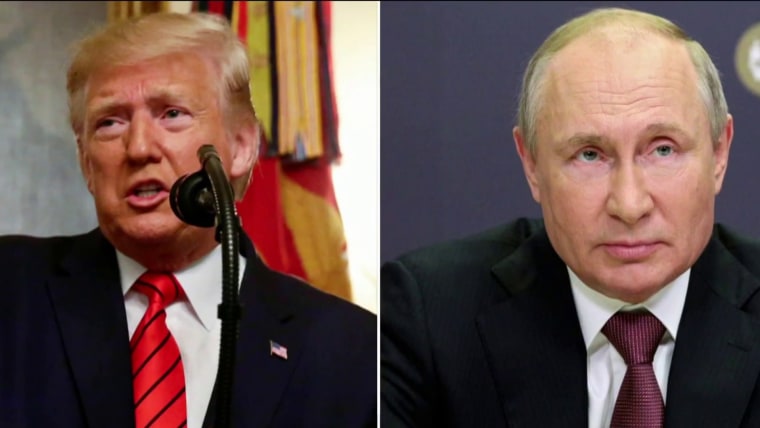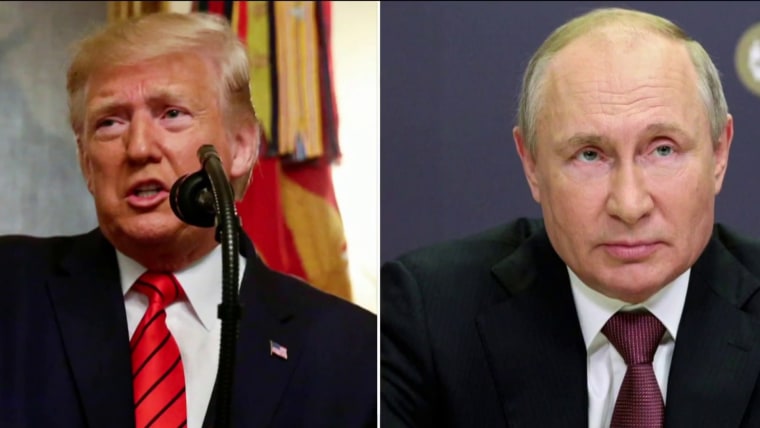
Donald Trump stated he preferred not to have a “fruitless meeting” after plans for in-person discussions with Russian leader Vladimir Putin regarding the Ukraine conflict were postponed.
The US president suggested that a major obstacle was Moscow’s unwillingness to halt hostilities along the existing front line, during comments made at the White House on Tuesday.
Earlier, a White House representative mentioned there were “no arrangements” for a Trump-Putin meeting “in the near term”, after Trump indicated on Thursday that talks would take place in Budapest within a fortnight.
Significant disparities between the US and Russian peace proposals became more apparent this week, seemingly diminishing the likelihood of a summit.
Trump and Putin last interacted in Alaska in August during a hastily arranged summit that produced no tangible outcomes.
The White House’s choice to postpone plans for a second Trump-Putin meeting might be interpreted as a move to avert another similar outcome.
“It seems the Russians had excessive demands and it became clear to the Americans that a deal for Trump in Budapest would not materialize,” a senior European diplomat conveyed to Reuters.
A preparatory discussion between US Secretary of State Marco Rubio and Russian Foreign Minister Sergei Lavrov was scheduled for this week, but the White House indicated that the two had engaged in a “productive” conversation and that a meeting was no longer “required”.
On Monday, Trump supported a ceasefire initiative favored by Kyiv and European leaders to halt the conflict at the current front line.
“Let it be established as it is,” he remarked. “I suggested: stop and retain the battle line. Go home. Cease fighting, cease killing people.”
Russia has consistently resisted the idea of freezing the existing line of engagement.
Kremlin spokesperson Dmitry Peskov stated the notion had been presented to the Russians multiple times but that “Russia’s stance remains unchanged” – alluding to Moscow’s demand for the complete withdrawal of Ukrainian forces from the contested eastern areas.
Moscow only desired “long-term, stable peace”, Sergei Lavrov remarked on Tuesday, suggesting that freezing the front line would just result in a temporary truce.
The “underlying causes of the conflict” must be addressed, Lavrov stated, employing Kremlin terminology for a series of maximalist demands that involve acknowledging full Russian sovereignty over the Donbas and the demilitarization of Ukraine – a non-negotiable for Kyiv and its European allies.
European leaders released a joint statement with Zelensky earlier on Tuesday asserting that any discussions on concluding the war in Ukraine should initiate with freezing the current front line, accusing Russia of lacking seriousness regarding peace.
Zelensky mentioned that dialogues concerning the front line were the “commencement of diplomacy”, which Russia was actively trying to evade.
The only subject that could prompt Moscow to “pay attention” was the provision of long-range arms to Ukraine, he added.
Trump had spoken about a summit in Budapest over the phone with Putin a day before meeting with Ukrainian President Volodymyr Zelensky at the White House.
Some reports indicated those discussions had escalated into a “shouting match”, with sources suggesting Trump urged Zelensky to concede large territories in the eastern areas of Donetsk and Luhansk, collectively known as the Donbas, as part of an arrangement with Russia.
However, Zelensky has consistently maintained that Ukraine cannot forfeit the parts of the Donbas it currently controls, fearing Russia might later exploit the region as a launchpad for further assaults.
Putin’s unexpected call with Trump last Thursday followed speculation that the US was getting ready to send long-range Tomahawk missiles to Kyiv capable of hitting deep within Russia.
Zelensky claimed it was the issue of Tomahawks that compelled Russia to engage in discussions.
Despite leaving the White House without an agreement, he stated that the conversation regarding the missiles had turned out to be a “robust investment in diplomacy”.

